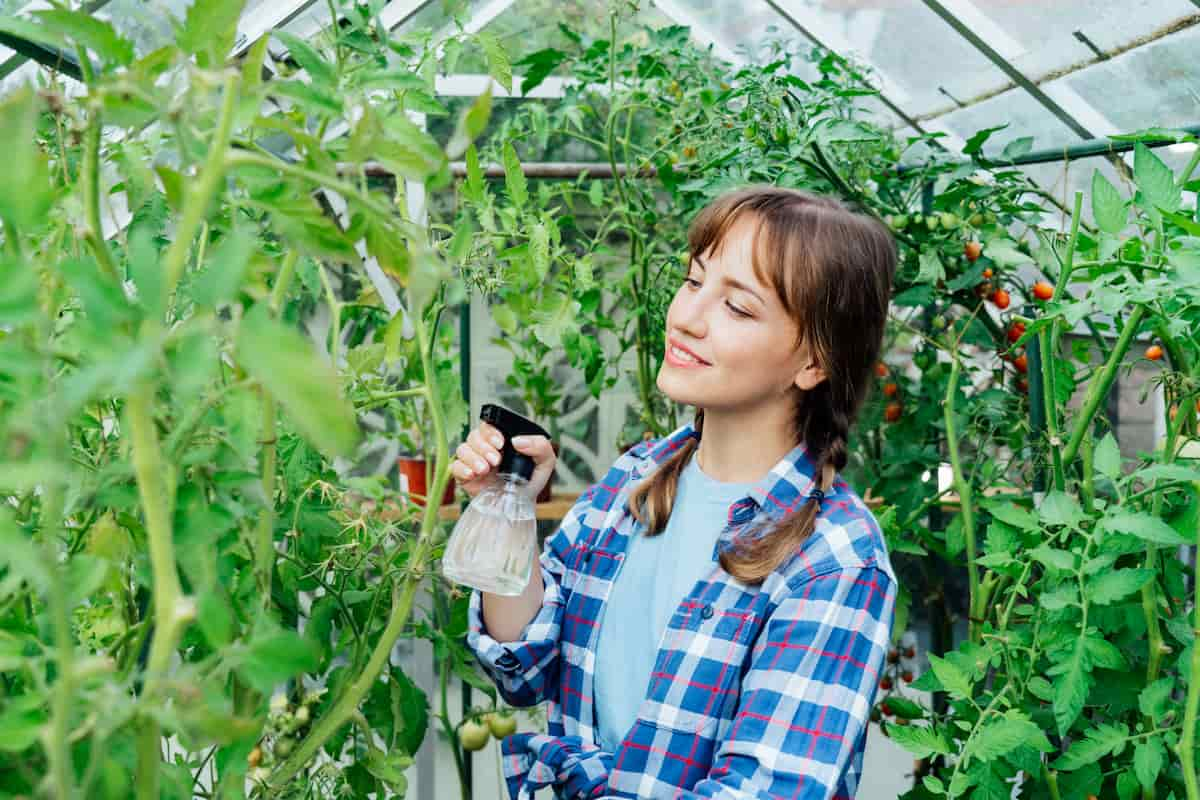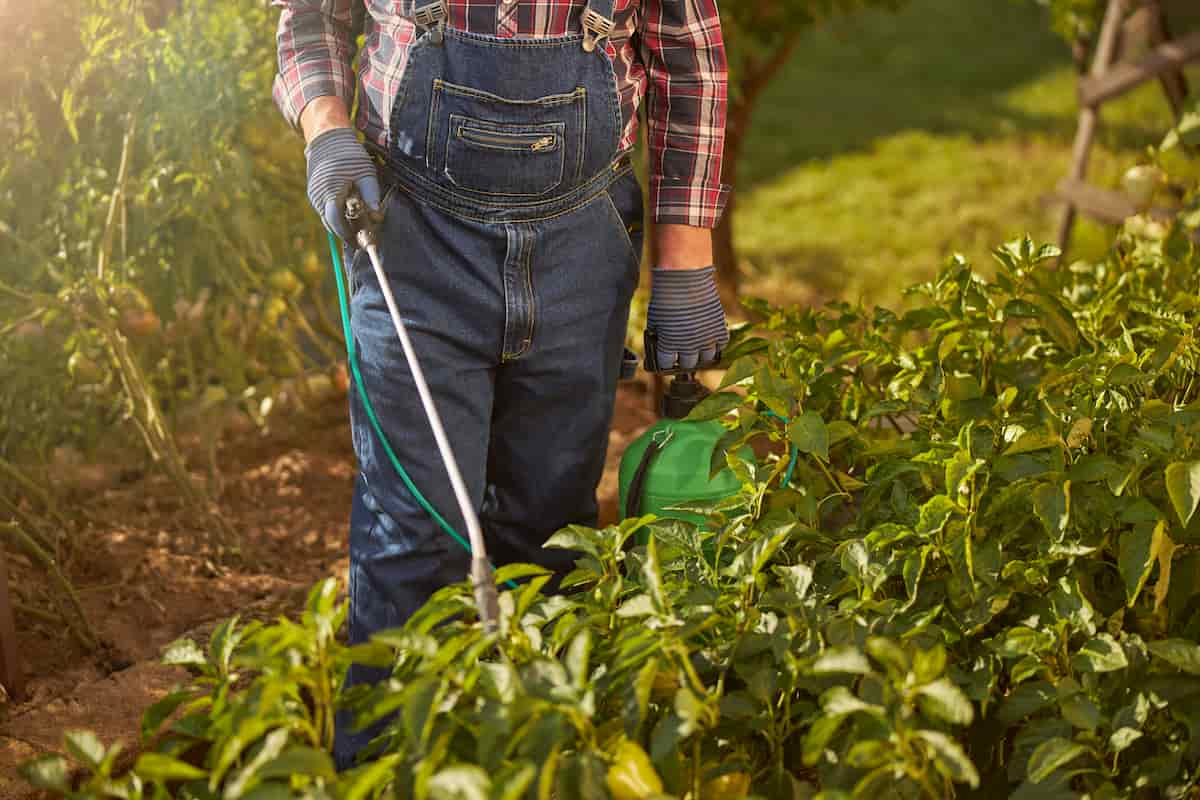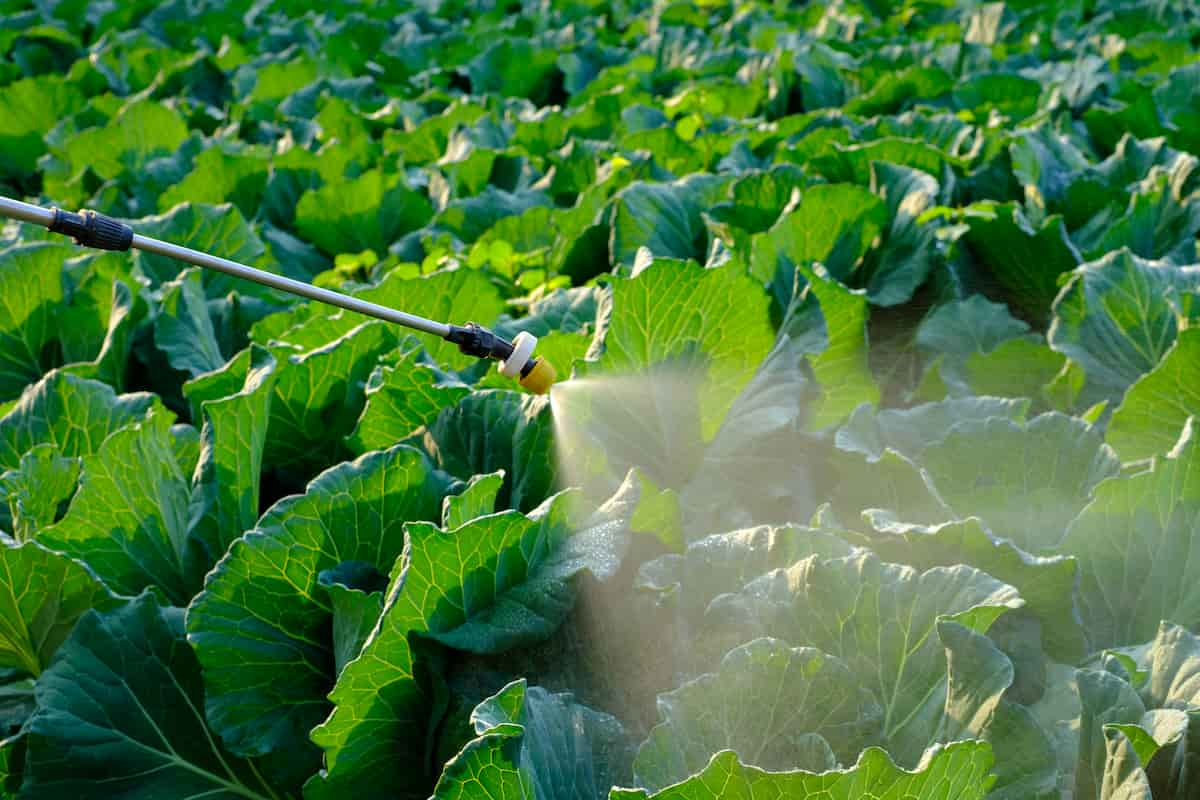There has been a growing interest in organic farming and using organic pesticides in recent years. Organic pesticides are obtained from natural sources and are considered a safer alternative to synthetic pesticides. This article will explain the role and importance of organic pesticides in sustainable agriculture.

Organic Pesticides in Sustainable Agriculture
What are Organic Pesticides?
Organic pesticides are natural compounds used in agriculture to manage pests and diseases. These pesticides are produced from natural sources such as plants, animals, and minerals and are intended to degrade swiftly in the environment, leaving little or no trace.
- These pesticides are used in organic farming and are considered a safer alternative to synthetic pesticides derived from artificial chemicals.
- Organic pesticides disrupt the life cycle of pests, such as insects and fungi, without harming beneficial organisms.
- Organic pesticides are considered more environmentally friendly than synthetic ones because they are less toxic and do not persist in the environment for long periods.
- Additionally, they can be used in conjunction with other pest control methods, such as crop rotation and biological control, to create a more sustainable and integrated pest management approach.
Role and Importance of Organic Pesticides
Organic insecticides derived from natural sources, such as neem oil, soap nuts, and eucalyptus, successfully control pests while causing no harm to the environment or beneficial organisms. They can also improve soil health and support sustainable agriculture by lowering the impact of pesticides on non-target organisms. Organic insecticides are valuable for farmers seeking to create a more sustainable agricultural future.
Effective Pest Management Through Organic Pesticides
- Organic pesticides such as neem oil, Pyrethrin, and Bacillus thuringiensis (Bt) are considered safer than synthetic pesticides because they are made from natural substances that break down quickly and are less toxic to the environment.
- Neem products can be used as a pest deterrent by grinding up neem leaves, cake, or kernels, adding water, and placing the mixture in pots around the field. The noxious smell from the neem products keeps pests out of the area.
- Soap nuts can control pests such as aphids, caterpillars, and whiteflies. They contain an insect-killing substance called cypermethrin in their sap and serve as organic insecticides.
- Eucalyptol, found in eucalyptus leaves, has been used since ancient times as a disinfectant, antiseptic, insecticide, and repellent. Cineole is the active component of eucalyptol and can prevent aphids, whiteflies, and mites.
- Organic pesticides do not harm beneficial insects or other organisms in the environment and can even enhance soil health by using biodegradable natural substances and improving soil structure.
- Using organic pesticides is an important tool for sustainable agriculture because they reduce the environmental impact of conventional agriculture while promoting soil health and biodiversity.
Organic Pesticides are Safe for the Environment
- Organic pesticides are safer for the environment than synthetic pesticides.
- They are made from natural substances that break down quickly and are less toxic.
- They do not harm beneficial insects or other organisms in the environment.
- Organic pesticides have fewer negative impacts on non-target organisms and the environment.
In case you missed it: Top 10 Benefits of Azadirachtin Pesticide in Agriculture Plants

Organic Pesticides Enhanced Soil Health
- Organic pesticides are beneficial for soil health as they are made from biodegradable natural substances that do not harm the soil ecosystem.
- Some organic pesticides, like neem oil, contain compounds that stimulate the growth of beneficial soil microorganisms and improve soil structure.
- By controlling pests that damage soil health, like nematodes, with organic pesticides, farmers can protect the soil and promote healthy plant growth.
- This not only enhances soil health but also ensures the sustainability of the soil for future crops.
Organic Pesticides Tool for Sustainable Agriculture
- Organic pesticides are a valuable tool for promoting sustainable agriculture. By minimizing synthetic inputs, organic pesticides can help reduce conventional agriculture’s environmental impact while supporting soil and ecosystem health.
- Sustainable agriculture practices prioritize soil health through cover crops, crop rotation, and other soil-building techniques. This leads to healthier plants and a reduced need for pesticides.
- Organic pesticides are often formulated to target specific pests, reducing the impact on non-target organisms and promoting biodiversity. By using organic pesticides and sustainable agriculture practices, farmers can reduce their impact on the environment while producing healthy, high-quality crops.
The 5 Best Organic Pesticides for Agriculture
- Neem oil: a natural oil extracted from the neem tree can be used to control various pests, including aphids, whiteflies, and mealybugs.
- Pyrethrin: a natural insecticide derived from chrysanthemum flowers that can be used to control various insects, including ants, beetles, and caterpillars.
- Bacillus thuringiensis: Bacteria that produce a toxin lethal to certain pests like caterpillars, bollworms, etc. but harmless to humans and other animals.
- Horticultural vinegar is a highly acidic vinegar that can control weeds and pests, such as slugs and snails.
- Spinosad: a natural insecticide derived from soil bacteria that can control a wide range of pests, including thrips, spider mites, and fruit flies.
Major Substances Used in Organic Farming Pesticides
- Copper and its forms, boric acid, Bacillus thuringiensis, Beauveria bassiana, and Pyrethrin are among the major substances used as organic pesticides in agriculture.
- Other substances include vegetable and fish oils, garlic, neem, kaolin clay, and pheromones.
- Sticky traps, tomato and rhubarb leaves, and beer are also on the list of organic pesticides.
- These natural substances break down more quickly than synthetic pesticides, reducing their environmental impact, and can help support soil health and biodiversity in sustainable agriculture.
Best Practices for Using Organic Pesticides
- Start with the least toxic option and only use stronger pesticides as necessary.
- Identify the pest accurately to choose the most effective pesticide.
- Apply pesticides during calm weather to avoid drift.
- Use protective clothing and equipment to avoid exposure to the pesticide.
- Apply pesticides in the early morning or late evening when bees and other beneficial insects are less active.
- Use pest-resistant plant varieties and crop rotation to reduce pest problems.
- Regularly monitor and scout for pests to catch infestations early.
- Use beneficial insects and birds to control pest populations.
- Keep pesticides in a secure location to prevent accidental exposure or ingestion.
- Dispose of unused pesticides properly according to local regulations.
- Test soil and adjust pH levels to reduce the need for pesticides.
- Use organic fertilizers to promote plant health and reduce the need for pesticides.
- Follow integrated pest management (IPM) practices to reduce pesticide use.
In case you missed it: How to Make and Use Cow Dung-Urine Pesticide

Conclusion
Organic pesticides play a critical role in sustainable agriculture by reducing the environmental impact of conventional pesticides while promoting soil health and biodiversity. Organic pesticides can lead to healthier plants, reduced reliance on synthetic inputs, and a more sustainable agricultural system.
- Feed Your Flock for Less: Top 10 Tips to Save on Chicken Feed
- Ultimate Guide to Ossabaw Island Hog: Breeding, Raising, Diet, and Care
- Hatching Answers: The Top 10 Reasons Your Chickens Aren’t Laying Eggs
- Eggs and Economics: Breaking Down the Cost of Raising Backyard Chickens
- Defend Your Greens: Proven Methods to Keep Iguanas Out of Your Garden
- Ultimate Guide to Cinnamon Queen Chicken: A Comprehensive Guide for Beginners
- Ultimate Guide to California Tan Chicken: Breeding, Raising, Diet, Egg-Production and Care
- Ultimate Guide to Marsh Daisy Chicken: Breeding, Raising, Diet, and Care
- 10 Types of Chicken Farming Businesses You Can Start for Profits